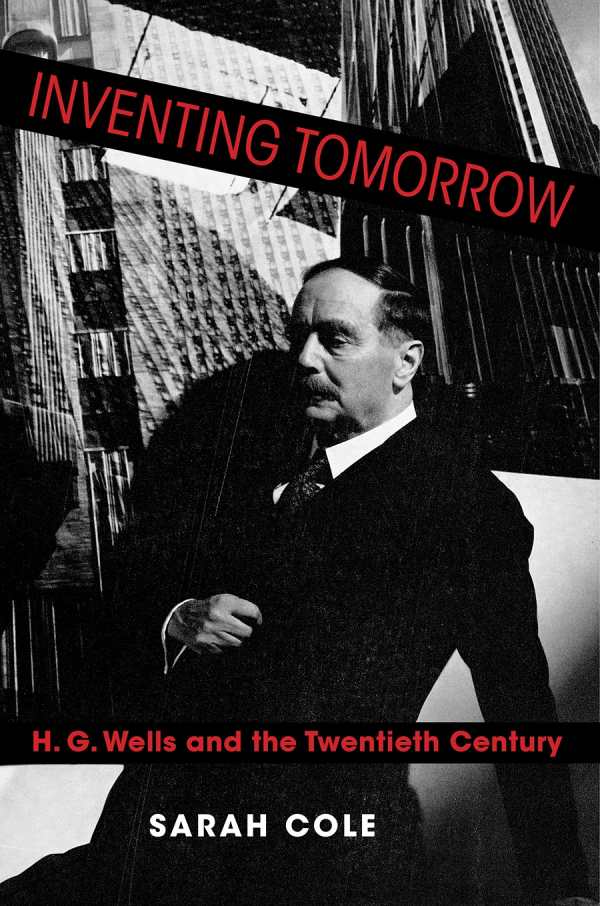Inventing Tomorrow
H. G. Wells and the Twentieth Century
Sarah Cole’s fascinating literary investigation Inventing Tomorrow shows how H. G. Wells’s work is relevant and meaningful today.
Beginning by juxtaposing Virginia Woolf’s heady novels with H. G. Wells’s brash journalistic work, the book’s exploration of the power of fiction, what’s required within it, and why it matters is wide. The topics that Wells addressed included the impact of war, the nature of time itself, and biology; all are still germane. The book goes beyond Wells’s science fiction work to consider his entire canon, including his political and historical efforts.
The book’s scholarship combines literary criticism with biographical elements, explaining how Wells mixed details of his own life and his modernist philosophy into his work. Born in 1866, he lived through the horrors of WWI, which brought photographic evidence of war’s brutality to the home front. He had the inspired idea to use civilian characters in his works as a way to explore the horrible impact of industrial war and society’s corresponding lack of moral understanding. Characters became tools, the book suggests, with which to carve out a new ethical landscape.
The book frames Wells as someone who considered himself not just a writer, but a journalist. His reading was wide, and he brought his awareness of science to his readers: the opening lecture in The Time Machine describes then contemporary understandings of space time, while another book pushes theories of evolution. His writings so become a guide for understanding the important issues of the early twentieth century.
Wells saw the world in all its ugliness and still tried to imagine a better one: one of universal education, in which science was fostered, and in which a cleaner planet was attained through human ingenuity and creativity, wielded to avert catastrophe. The great fun of reading Inventing Tomorrow comes in imagining what life and literature might have attained had the world followed Wells’s lead.
Reviewed by
Jeremiah Rood
Disclosure: This article is not an endorsement, but a review. The publisher of this book provided free copies of the book to have their book reviewed by a professional reviewer. No fee was paid by the publisher for this review. Foreword Reviews only recommends books that we love. Foreword Magazine, Inc. is disclosing this in accordance with the Federal Trade Commission’s 16 CFR, Part 255.

